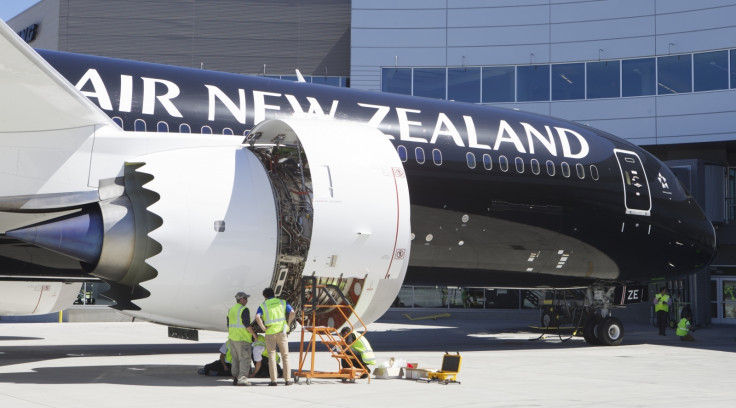Rolls-Royce engine trouble forces Air New Zealand to ground flights
Two flights to Tokyo and Buenos Aires were forced to return to Auckland earlier this week amid engineering issues.

Air New Zealand has been forced to ground some of its international flights after revealing some of the Rolls-Royce engines mounted had to be inspected.
Citing "two recent events", the carrier said on Thursday (7 December) that a number of Trent 1000 engines that powered its Boeing 787-9 fleet needed maintenance "sooner than previously advised" and confirmed flights would be cancelled or delayed every day for the forthcoming weeks.
The news comes after two Air New Zealand flights, heading to Tokyo and Buenos Aires respectively, were forced to return to Auckland after take off earlier this week, due to unspecified engineering issues.
According to the New Zealand Herald, passengers on the flight to Tokyo reported hearing "weird noises" and said the aircraft was shaking throughout the flight.
While New Zealand's national carrier did not disclose the cause of the issue, the New Zealand Transport Accident Investigation Commission said it was investigating two events involving "engine abnormalities".
Air New Zealand is not the first airline to report issues with Rolls-Royce's Trent 1000 engines. In August last year, All Nippon Airways announced it would replace all 100 Rolls-Royce engines on its fleet of Boeing 787 Dreamliners following three engine failures earlier in the year.
The issue stemmed from corrosion and cracking of turbine blades and forced Rolls-Royce to fit new blades on all the 787s operated by Japan's largest airline. News of the replacement, however, was seen as a major blow for the carrier, which is the world's largest operator of 787s, as the process can take up to three years.
Earlier this year, Virgin Atlantic switched one of its daily trans-Atlantic flights to Delta Air Lines, which bought a 49% stake in Virgin Atlantic in 2012, to allow the Trent 1000 engines mounted on its 787 Dreamliners to undergo maintenance.
Rolls-Royce said it was working with Air New Zealand to minimise disruption and vowed to restore full flight operations as soon as possible.
"It's not uncommon for long-term engine programmes to experience technical issues during their life and we manage them through proactive maintenance," a Rolls-Royce spokeswoman was quoted as saying by Reuters.






















